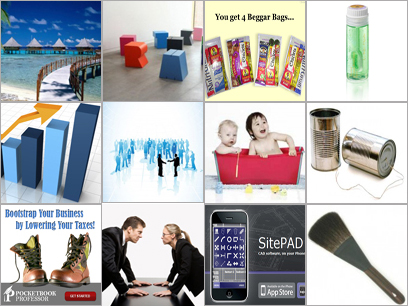 Lately I’ve been thinking about the leadership characteristic of integrity. Several years ago, I worked for a leader who lived out that quality. In fact, if you looked up the word “integrity” in the dictionary, I think you’ll see his face posted next to the word. It was great working with a person I could trust – knowing I could believe what he said and that his motives were true.
Lately I’ve been thinking about the leadership characteristic of integrity. Several years ago, I worked for a leader who lived out that quality. In fact, if you looked up the word “integrity” in the dictionary, I think you’ll see his face posted next to the word. It was great working with a person I could trust – knowing I could believe what he said and that his motives were true.
I recently traveled to China with four businessmen to participate in an ethics and management forum for Global Partners in Hope (GPiH). During one of our luncheons, two of the men had a very lively discussion about honesty in the workplace, with both agreeing it was extremely important.
As I watched their animated conversation in which they talked excitedly and nodded their heads in agreement, I was blown away by how strongly they felt about this issue. One of the men said, “Hey, if an employee will lie about a small thing, then count on them lying about the big stuff, and I can’t afford to have employees who are dishonest.” The book of Proverbs in the Bible states, “It’s better to be poor than a liar.” I think we underestimate the impact of a lie and how it affects relationships.
During the forum in Beijing, one man told of how dishonesty had affected both himself and his family. He spoke with tears and it was clear he was wrestling with how to function with real integrity in his business.
Honesty is important in most cultures, but how we define honesty can be confusing. What one might call “negotiations” another culture might call a “bribe.” In certain cultures, negotiations are expected as a rule in business. For example, at the Silk Market in Beijing, a person is expected to barter for a certain product. If you don’t, it’s not “sporting” or much fun. Most of the fun is in the bartering, right? There seems to be a clear definition between a negotiation and a bribe. The merchant would not consider this process as being dishonest.
How about in the workplace when an employee who calls in “sick,” but he or she actually is just fine and simply took the “sick” day to play tennis. Is this acceptable? Should we just accept this in the workplace? Should an employee lose their job over a “little lie”?
A line should be made clear in the workplace about honesty and what is acceptable. The leader has the responsibility to model this for those they lead. Why? Because it builds trust, and trust is the foundation for healthy relationships. If trust breaks down, then relationship will break down. Employees want a leader they can trust and employers want employees they can trust.
Regardless of the responsibilities of a leader, some leadership characteristics have universal value. Honesty is a key component of integrity, and any leader looking to lead effectively will not overlook its significance.
About the Author:
Ian Vickers is chief executive officer of Global Partners in Hope (GPiH). The organization aims to bring hope to communities around the world through partnerships between people who can help and people who need hope. To read more about the difference GPiH is making in communities internationally, visit http://www.globalpartnersinhope.com

 Have you noticed the customer service in small businesses in your area has improved? During a recession small business sales slump, and every company is fighting for customers. This is when excellent customer service becomes important.
Have you noticed the customer service in small businesses in your area has improved? During a recession small business sales slump, and every company is fighting for customers. This is when excellent customer service becomes important.





